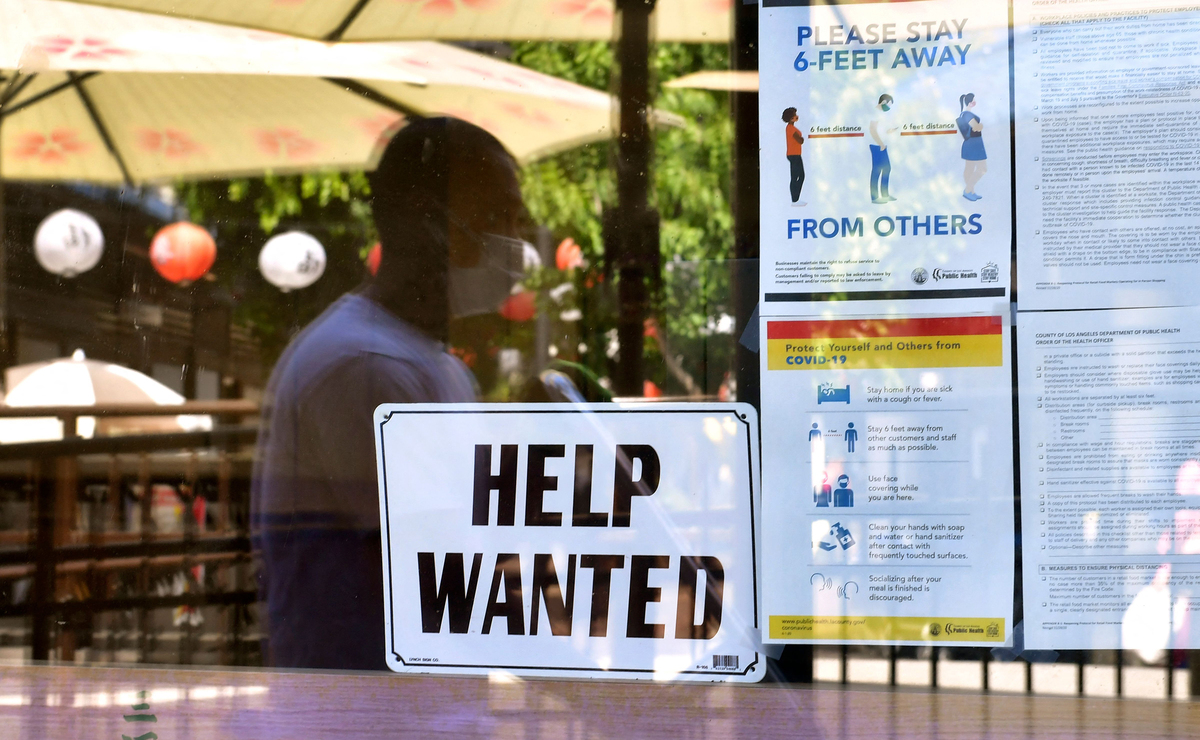How employers can win workers back (and keep them) after the ‘Great Resignation’

Enlarge this image
A Now Hiring sign hangs near the entrance to a Winn-Dixie Supermarket in Hallandale, Florida.
Joe Raedle/Getty Images
hide caption
toggle caption
Joe Raedle/Getty Images

Enlarge this image
Tamara Mahmood now has a job with greater flexibility and more time at home.
Hassan Mahmood
hide caption
toggle caption
Hassan Mahmood

Planet Money
Why are so many Americans quitting their jobs?
Economics professor at Howard University, William Spriggs, points out that women are both leaving the workforce and switching industries in large numbers when compared with men. He said industries that traditionally relied on more women than men for work weren’t facing a labor shortage, they were facing a labor shrinkage.
Women have dropped out of the workforce at twice the rate of men since the beginning of the pandemic. And last month, the Bureau of Labor Statistics reported that men gained all of the 194,000 positions added to the economy in September while 300,000 women left the workforce.
Spriggs said attracting and retaining women was essential to a growing economy. Part of why so many women have left jobs during the pandemic was because they may not have the supports necessary to balance family life alongside a job.
«In order to get women’s labor force participation up, you have to do all the other things that other advanced economies do: better pre-K opportunities, they have paid leave,they have greater support for elder care,» Spriggs said.
He believes the U.S. government should rethink such provisions as essential parts of its labor infrastructure if it wants a full economic recovery following this recession.
So what do employers need to change?
With such large swathes of the American labor force leaving their jobs, the scales of power are tipping in the directions of workers. This means employers need to rethink not only the benefits they are offering workers, but the way in which they treat their workers, too.
Laszlo Bock said the most important consideration for employers was simple: «Make humans actually feel like human beings.»
Bock, who was an HR executive at Google, has since co-founded his own HR consulting firm, Humu. His firm consults with organizations and uses artificial intelligence and data-driven research to identify behavioral changes that can make workers feel more satisfied.
«In the pandemic, people have talked a lot about essential workers, but we actually treat them as essential jobs. We treat the workers as quite replaceable,» he said.

Enlarge this image
A ‘Help Wanted’ sign is posted beside Coronavirus safety guidelines in front of a restaurant in Los Angeles, California on May 28, 2021.
Frederic J. Brown/AFP/Getty Images
hide caption
toggle caption
Frederic J. Brown/AFP/Getty Images
A ‘Help Wanted’ sign is posted beside Coronavirus safety guidelines in front of a restaurant in Los Angeles, California on May 28, 2021.
Frederic J. Brown/AFP/Getty Images
First, he said, because the cost of switching jobs was much lower for hourly workers, while the day-to-day tends to be worse [than for white collar workers], health benefits and a living wage «on day one» are essential.
Beyond that, there are logistical considerations that can make the lives of workers easier, like inquiring about the kind of commute employees have to make to get to work. The longer and more involved the commute, the higher the attrition rate for workers. Another example Bock cites, is changing conventions like scheduling hourly workers for both closing and opening shifts, back-to-back.
«That’s exhausting. That’s a lot of extra work at the end of the day, and then you have to come in early to open. A simple thing is to not schedule those back-to-back hourly workers,» he said.
For office workers, Bock said his firm had done extensive research on the optimal balance between remote work and office work to find that 3 days at home and about 1.5-2 days in the office made for the ideal equilibrium for both productivity and the employee’s own happiness.
«It gives you heads down time from home to focus: get work done, attend to personal things, time shift,» he said.
«But, it also gives you that one-and-a-half to two days a week to connect with people in the office and retain that social connection.»
Bock’s advice to managers across the board is to prioritize the emotional support that a leader can provide rather than the bureaucratic elements of management. What’s most important, he says, is providing an environment that is meaningful and empowering, where people feel trusted and included.
This kind of treatment doesn’t just lead to happier employees, Bock said, it made business sense, too.
«Because the managers who are doing that are far better at retaining their teams,» he said.
«So I think there’s a real opportunity.»
- great resignation
- Jobs
- business
- Work














Комментарии 0